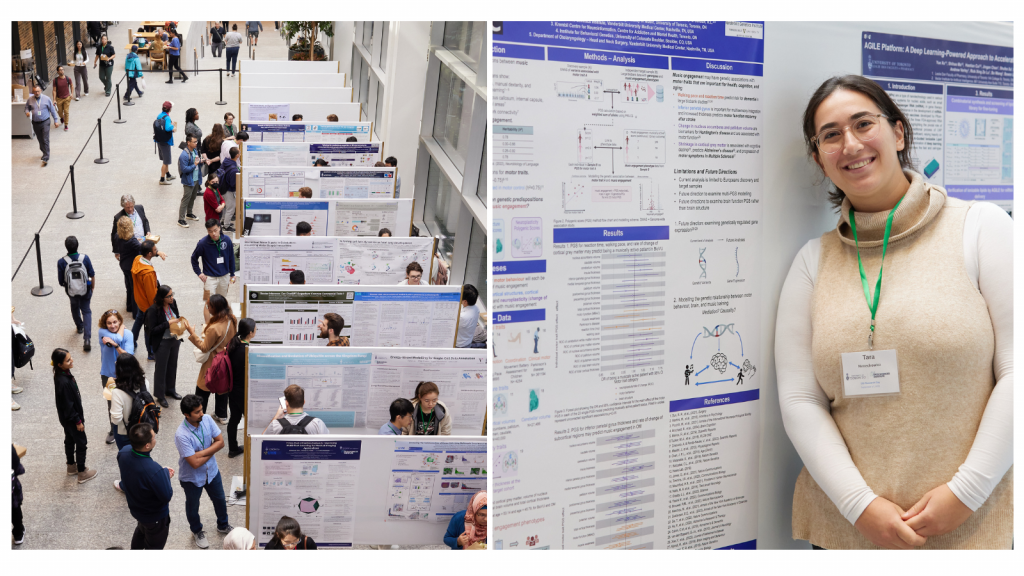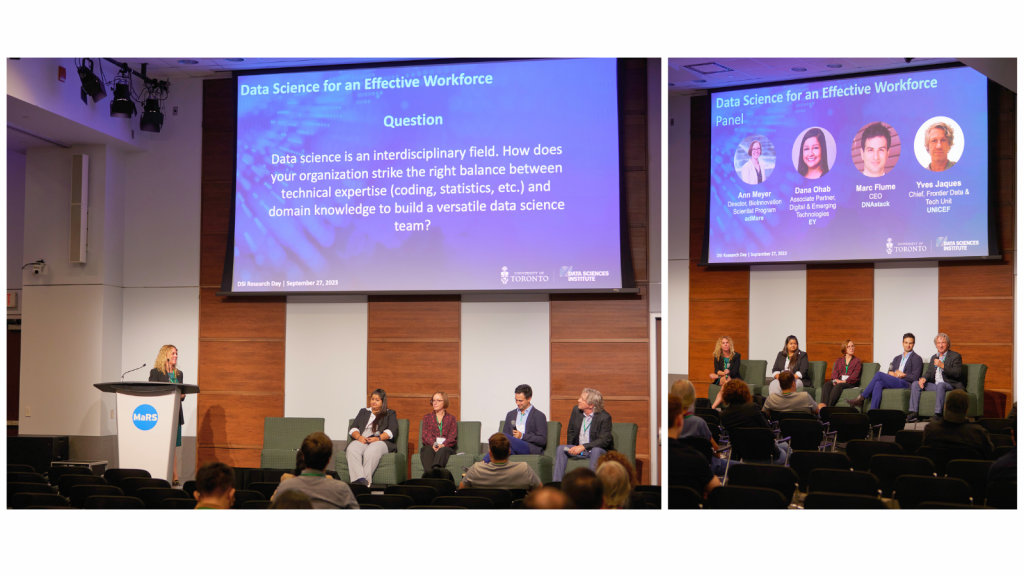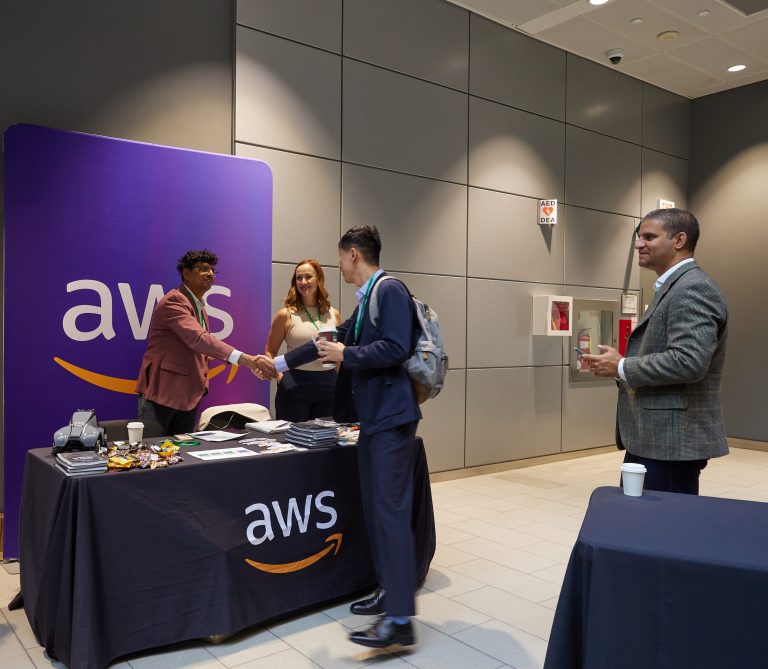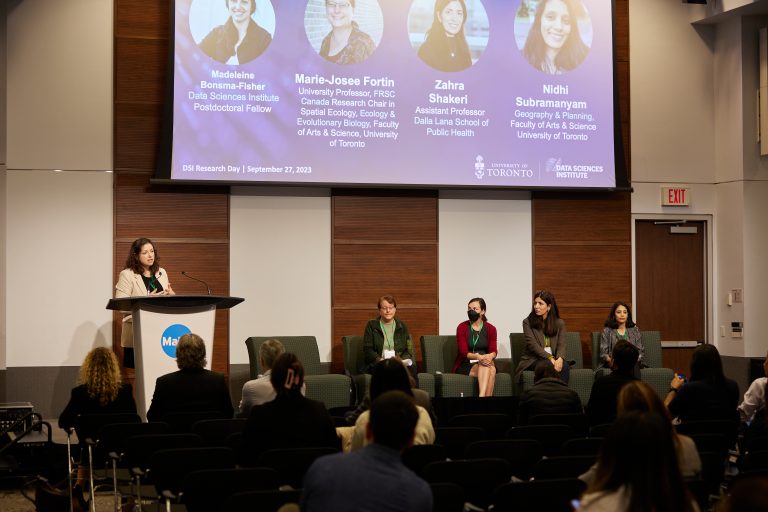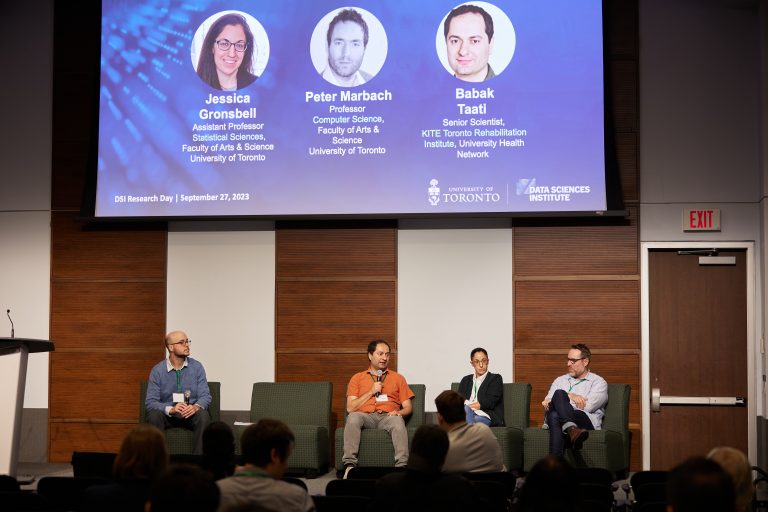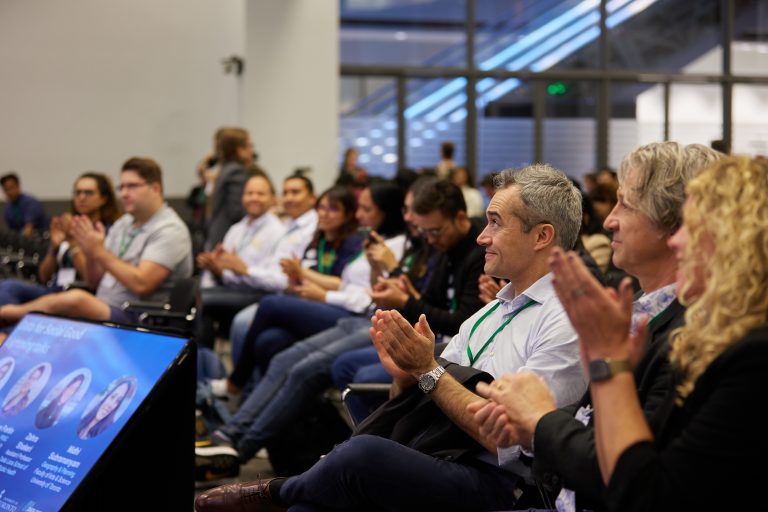by Sara Elhawash
What are the key skills and qualities required for successful professionals in today’s rapidly evolving data science landscape and how do they inform training?
To address this important question and understand the needs of organizations, the Data Sciences Institute (DSI) invited industry and non-profit leaders to the Data Science for an Effective Workforce Panel at our Research Day earlier this fall. The panel featured experts from diverse sectors, including Mark Fiume (Co-Founder & CEO, DNA Stack), Ann Meyer (Director, BioInnovation Scientist Program, adMare BioInnovations), Dana Ohab, Associate Partner (Digital & Emerging Technology, EY), and Yves Jaques (Chief, Frontier Data & Tech Unit, UNICEF).
Engaging with data science leadership is key to our understanding of the essential skills, both soft and hard, that employers are looking for in a data-driven decision-making world. The DSI’s newly launched Data Science and Machine Learning Software Certificates have been shaped by such input from employers.
During the panel discussions and Q&A from participants, the demands of the industry came to the forefront, with panelists providing valuable insights and a roadmap for data science professionals. It was clear that an understanding of data science and continuous learning are key for a wide range of professional fields.
“There hasn’t been a more exciting time to be in data and data science. What we are seeing is the expectations of our clients have fundamentally changed, the world we work in today has been moving faster and is more tailored than ever seen before,” stated Dana Ohab.
Dana also emphasized that building a community of practice and forming strategic partnerships is a blueprint many use for staying relevant in the industry. Her advice underscored the need for continuous learning and networking to remain at the forefront of data science.
In addition to technical skills, soft skills or job-ready skills are critical. “Data science is a dynamic field that requires more than just technical skills. It’s about effective communication, adaptability, and the ability to bridge the gap between complex technical expertise and real-world business understanding. The Data Science and Machine Learning Certificates at the Data Sciences Institute aim to equip learners with these essential skills, ensuring they are not only data-savvy but also capable of making a meaningful impact in a constantly evolving landscape,” says Ann Meyer.
Yves Jaques emphasized the value of data science in driving positive change: “We are building capacity globally to identify local solutions and talent. We take a community first response and look at the ethical implications of how data is used globally. We leverage partnerships to bring real time results.”
Marc Fiume shared the inspirational story of his best friend, Dan, who battled cystic fibrosis due to mutations in his CFTR gene. This story served as the driving force behind DNA Stack’s mission, which aims to “save and improve the lives of people like Dan, by harnessing the collective power of the world’s genomics and health data.”
He stressed that the future of genomic medicine would be powered by data scientists, signifying the critical role of data science in addressing these healthcare challenges.
The panel discussion, and continuing input from data science leaders, enable the DSI to serve as a unique and enriching bridge to connect researchers with organizations in order to offer cutting-edge, in-demand training. The certificates offer an exclusive opportunity to learn from industry experts through case study components, providing invaluable insights into the professional world of data science
To watch the video recording of the panel, click here.
The DSI Data Science Certificate and Machine Learning Software Foundations Certificate are tailor-made for professionals with no prior technical background who aspire to excel in data science careers. In addition to technical skills courses, participants engage in job-ready skills sessions and networking opportunities to successfully enter, or further their career, in the data sciences. Both continuing education certificates offer an exclusive opportunity to learn from industry experts through case studies. The cost for each certificate is $425. For information and to apply, click here.

